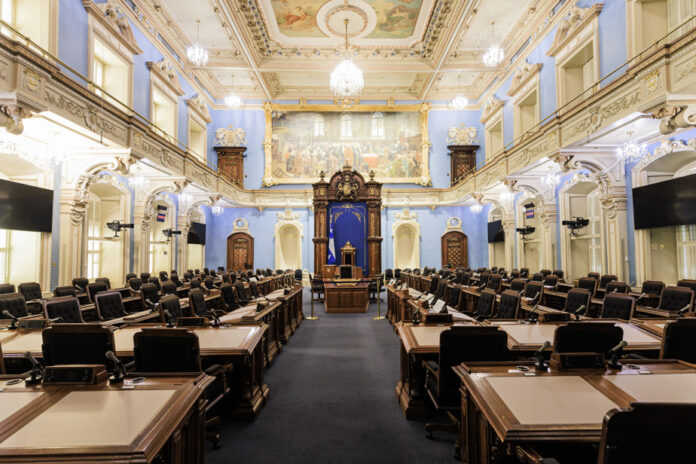(Quebec) Given their workload and their atypical schedule, the hours spent traveling between their constituency and Quebec City, but also in an “increasingly worrying” security context, the committee responsible for reviewing the salaries of MNAs proposes to increase their base annual compensation from $139,745 to $169,950.
These amounts include the basic annual indemnity and the expense allowance for elected officials. The committee’s report, formed at the request of the Office of the National Assembly (BAN) of former Liberal MP Lise Thériault and former PQ MP Martin Ouellet, was tabled Wednesday at the Blue Room. Elected officials will have to pass a law if they want to implement these recommendations.
In more detail, the basic annual allowance for an MLA is currently $101,561. Added to this is an expense allowance that brings his compensation to $139,745. In the present legislature, only 10 deputies receive this basic salary, occupying no other remunerated position (chairman of a committee, parliamentary assistant, etc.). By comparison, an elected member of the Legislative Assembly of Ontario is paid $116,500 to sit in Queen’s Park in Toronto.
Mr. Ouellet and Ms. Thériault, who worked on the committee with Jérôme Côté, a “professional in compensation and strategic human resources management”, are surprised that the annual allowance for elected officials ($101,561) is less than a political aide or adviser, whose maximum compensation is $106,126.
By comparing the basic remuneration of MNAs with executives in the public and parapublic sectors, they note, “the remuneration of MNAs [including the expense allowance, i.e.] $139,745, is placed […] just after the remuneration granted to executives […] of School Service Centers, [to] $140,967”.
By increasing the base annual compensation from $139,745 to $169,950, the recommended increase corresponds to 21%. Lise Thériault and Martin Ouellet consider that it should also be applied retroactively from the 2023-2024 fiscal year, then indexed “equivalently to any revision and increase in the salary of class 4 of the category of first officers, vice-presidents and members of a government agency”.
The question of the remuneration of elected officials is a delicate issue, and has always been. The last review of MPs’ salaries dates back to the early 2000s.
“The issue of the appearance of a conflict of interest remains an issue whenever the working conditions of MPs are discussed. Their conditions are fixed in a law and they can therefore only be modified by the parliamentarians themselves,” recall Mr. Ouellet and Ms. Thériault in their report.
“The creation of a standing committee with a mandate to periodically review the working conditions of parliamentarians could undoubtedly lessen this issue and allow parliamentarians to maintain a greater distance from this issue”, they add, thus taking up a recommendation formulated in 2013 by the Independent Advisory Committee on the Working Conditions and the Pension Plan of Members of the National Assembly chaired by retired Supreme Court of Canada Justice Claire L’Heureux-Dubé.
For Lise Thériault and Martin Ouellet, there is no doubt that the “precarious function” of an MP, whose mandate is renewed every four years, when a party obtains a majority of seats in the Blue Room, justifies competitive remuneration. . According to a survey carried out in 2019 at the request of the BAN, elected officials estimated that they spent an average of “63 hours per week on their work and 10 hours per week on their business trips”.
“A political career is often short-lived. It also poses particular challenges when it comes to an end. One thing remains: those who have reached half-time in working life have put their careers on hold. In many cases, they will have to update their knowledge and their network of professional contacts. Job prospects or opportunities for retraining after the end of their career are often more scarce or difficult,” they write.
In addition to their basic annual indemnity, the expense allowance and additional indemnities when they hold parliamentary office, the elected members of the National Assembly have access to a group insurance plan, a transition allowance in end of term and a pension plan.


















